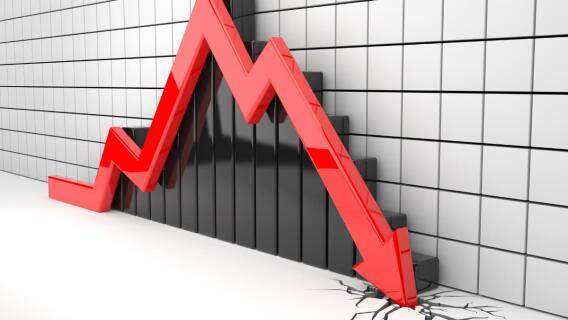Bear Market? Normal Correction? Whatever This Is, Here’s How to Maintain Your Sanity as an Investor.
If you have been in the wrong stock or sector the past several months the pain to your portfolio has been extreme. Growth stocks and IPOs have had a particularly rough go during this rolling bear market.
For example, Uber (UBER), Lyft (LYFT), and Slack (WORK), three of the biggest recent IPOs, are all down more than 30% in the last six months. Or take a look at more mature growth stocks, which have been a total mess as stocks like Twilio (TWLO) and The Trade Desk (TTD) are each down more than 20% in the last three months.
And while my Cabot Options Trader subscribers have largely avoided most of this mess and are holding a Put position as a hedge, it has been almost impossible to avoid losses entirely. That said, almost more important than preserving financial capital in a rolling bear market such as this one is saving your mental capital.
[text_ad]
Unless you had a portfolio full of utility stocks and bearish trades headed into September you have likely felt pain recently. So here are my personal rules for dealing with a bear market and losses so that you can save yourself some anguish.
3 Ways to Save Mental Capital in a Bear Market
Avoid beating yourself up. There is NO upside to constantly staring at your past mistakes and re-analyzing what went wrong. For example, I hate that I bought Metals & Mining (XME) calls days before trade war tensions re-ignited. But at the time of the trade, the market looked like it was in good shape, call activity was bullish, and the risk/reward was right. Unfortunately, the market fell apart, and I was wrong. So like a quarterback who just threw a first-quarter interception, I have moved on knowing that there will be more throws/trades to be made.
Recognize that you, the investor/trader, will not be perfect. The only traders who will get every trade right are con artists like Bernie Madoff. You will make trading mistakes, and there will be losses from time to time. Knowing this, my general goal for trading is to try to get six out of 10 trades right—and of those six I hope to really hit a grand slam with one or two of those trades. That said, if I’m hoping to get six trades right, that means there will be four trades that won’t work. If you go into a trade recognizing that you could be wrong, when it happens, the mental strain will be less.
If you get cold, or the setup isn’t right, don’t trade. This is the hardest rule to adhere to, but it’s the most important. I like to trade as much as anyone. However, I also like my hard-earned money as much as anyone. So if there is no edge, I won’t trade. Here is a quote that best summarizes waiting to find the best setup that I have on a sticky note on my computer monitor.
“You don’t have to involve yourself in every market movement. In fact, you should not attempt to. Be an exacting opportunist. Be selective and pick your entry spots very carefully. Wait until the probabilities are stacked in your favor before you act. With patience and discipline, you can profit from market opponents who are less disciplined and less capable than you are. While you do nothing, less skilled opponents are laying the groundwork for your success, and you get to wait and watch for free. What a deal!”
We will take more shots into this market in the days/weeks to come. I like the look of stocks such as Teradyne (TER), DocuSign (DOCU) and Keysight Technologies (KEYS). However, it won’t happen until I feel that the risk/reward is in our favor—and I will recognize that when I buy that there is no guarantee of success, and should I fail, that the next great trade could be on the horizon.
[author_ad]

